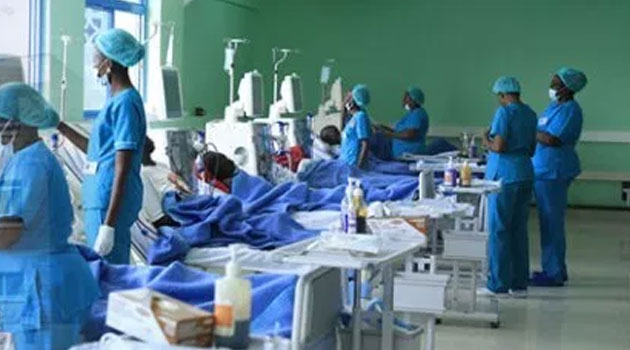NAIROBI, Kenya, Mar 26 – President Uhuru Kenyatta has directed the release of Sh1 billion from the Universal Health Coverage (UHC) kitty for the recruitment of additional health workers to support in the management of coronavirus.
Kenya had recorded 31 positive cases of the virus by Thursday, when three new cases were confirmed.
The president directed the Ministry of Health, County governments and the Public Service Commission (PSC) to expedite the recruitment process.
Doctors, nurses and paramedics around the world are facing an unprecedented workload in overstretched health facilities, due the fast-spreading virus.
They are working in stressful and frightening work environments, not just because the virus is little understood, but because in most settings they are under-protected, overworked and themselves vulnerable to infection.
“We need a whole-of-society resolve that we will not let our frontline soldiers become patients. We must do everything to support health workers who, despite their own well-founded fears, are stepping directly into COVID-19’s path to aid the afflicted and help halt the virus’s spread,” Kenyatta said Wednesday, when he declared a dusk-to-dawn curfew to help arrest the situation.
One of the patient who tested positive in Kenya has recovered.
“I am also pleased to announce that numerous other suspected cases have been found to be negative after rigorous testing. But more importantly, we have registered our first patient who has fully recovered from this virus,” said the President.
According to the United Nations, in sub-Saharan Africa as elsewhere, pressure on the healthcare workforce will intensify in the coming months.
A recent survey of National Nurses United (NNU) members in the US, revealed that only 30% believed their healthcare organization had sufficient inventory of personal protective equipment (PPE) for responding to a surge event.
“In some parts of France and Italy, hospitals have run out of masks, forcing doctors to examine and treat coronavirus patients without adequate protection.”
“The situation in poorer countries will be worse. Demand has far outstripped supplies,” the report indicated.
Evidence indicates that corona virus can survive on some hard surfaces for up to three days, but it is also easily killed by simple disinfectants.
“Health workers need the back-up of ancillary staff to increase the frequency and rigor of cleaning light switches, countertops, handrails, elevator buttons, and doorknobs. Such measures can give much-needed reassurance to stressed caregivers and protect the public too,” the UN stated.












































